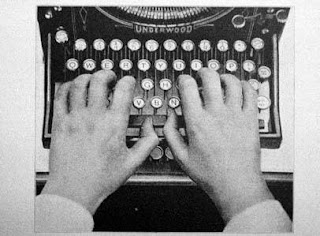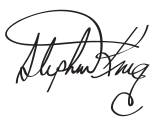Have you ever watched the movie The Seven Year Itch? That's the movie in which, among other things, Marilyn Monroe stands stands over a subway grate so she can get some relief from the summer heat. The heat which, at least in the 1950s, drove people out of New York during August.
Apparently New Yorkers aren't the only folks to take August off. The publishing world did as well. Which is no surprise given that New York used to BE the publishing world. But that wasn't the only reason. Dean Wesley Smith tells us that book sales traditionally slump during the summer, from mid-May to mid-September.
Which brings us to the subject of Dean's post: The Seasons of Publishing. Specifically: fall, winter and spring. When I read that list I suspected a typo. Where's summer? But in publishing there was no summer. There were three seasons and each lasted for 4 months. Dean writes:
[A] major reason for no summer catalog and sales season for the publishers was that it was known that the lowest time for buying books by customers was May through the middle of September. That has not changed.The lesson for indie publishers:
Don't watch your numbers like an obsessive-compulsive hawk!
If, currently, your book sales are down, at least one of the reasons is that it's summer and book sales go down in the summer. Simple as that. But that's just one reason that your sales could be down. The important point here is that, many times, when your sales go down it has nothing to do with your book. The dip is often completely beyond your control.
So if indie authors worry about our sales dropping and try to prop them back up by commissioning another cover, by rewriting the blurb, and so on, we really are just wasting time that could have spent writing more books.
Given the natural ebb and flow of book sales, what should indie authors do? Here are Dean's suggestions:
1) Focus only on learning and writing the next book.I especially like Dean's recommendation to give a new price at least 6 months to preform before changing it again. Well, that and the advice to publish during the summer to give your book some traction before Christmas. Actually, I like it all! (grin)
2) Check your numbers when the money gets deposited every month and no more.
3) Expect your overall sales to go down from May 15 to September 15 unless you push in new titles or do something else to change your list.
The summer is a great time to push in new titles because they will be solidly in the system, throughout the world, as we go into the fall book-buying season. So if you do anything in the summer, get new titles up.
If you do change a price, for heaven’s sake, give the new price at least six months to nine months to return numbers to you. Changing a price from week to week or month to month is just flat silly in this business.
Think long term. Checking your sales numbers twelve times per year is enough. And for heaven’s sake, stop reacting to low sales in a traditional low-sales period in the business.
Nothing wrong with your books. Low sales in the summer are just normal.
You can read Dean Wesley Smith's entire article here: The New World of Publishing: The Seasons of Publishing.
Other articles you might like:
- Writing Resources
- The Role Of The Unconscious In Writing
- Lyla Sinclair's 8 Secrets Of Successful Romance Writing
- How Do Writers Get Their Ideas? Neil Gaiman, Seth Godin & Stephen King










